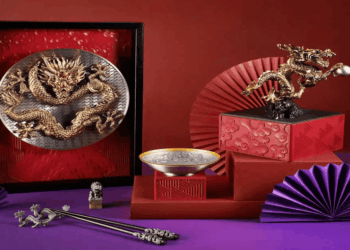Chinese New Year is a week away, and two years without seeing your extended family members from both your mom’s and dad’s sides of the family is a blessing, as you are given a free pass to not greet your uncles and aunts that you only see once a year during weddings.

This year might be the year for family gatherings to return – but you might have forgotten the myriad ways to address your uncles, aunts, cousins, etc. Don’t worry, here’s a refresher for you to avoid looking like an idiot for calling your relatives by the wrong title.
The Basics (Immediate family)

For immediate family, there are a lot of ways of addressing one’s elders, as there are different dialects of the Chinese language. Also, the elders from your mom’s side are addressed differently that those from your dad’s. The easiest way to address your grandparents is 婆婆 (Po Po) – Grandma, 公公 (Gong Gong) – Grandpa from your dad’s side of the family; and 外婆 (Wai Po) – Grandma, 外公 (Wai Gong) – Grandpa from your mom’s side of the family.
But, if your family’s Hokkien, Teochew, Cantonese or Hakka, you can just address them as to how you were taught by your parents since you were a kid (according to your dialect). You don’t need to look confused if your cousins address your grandparents in a different dialect, even when they are referring to the same grandparents as you..
Extended Family (Father’s Side)

How to address your granduncles and grandaunts would vary between dialects as well. The Cantonese and Hakka dialects are the trickiest to grasp, as certain words, if said wrongly, could be insults. The standard Mandarin way of addressing of your grandpa’s brothers would be 大伯/伯公 (Da Bo/ Bo Gong) or 叔公 (Shu Gong) if they are older or younger than your grandpa. Your grandaunts are called 姑婆 (Gu Po) whether they are older or younger than your grandpa; and your grandaunts would be addressed as 姑婆.
Your paternal uncles and aunts are addressed as 叔叔 (Shu Shu) or 姑姑 (Gu Gu) – you can address them by their given name and add a 叔叔 (Shu Shu) or 姑姑 (Gu Gu) to show respect. This could vary from family to family. Your cousins are called 堂哥/弟/姐/妹 (Tang Ge/Di/Jie/Me), depending on who’s older than you.
Extended Family (Mother’s Side)

For your mother’s side of the family, your grandparents’ siblings are called 舅公 (Jiu Gong) or 姨婆 (Yi Po), while your uncles and aunts are addressed as 舅舅 (Jiu Jiu) or 姨姨 (Yi Yi). Just like your paternal extended family, you can address your uncles and aunts by their given names and address them by their titles – 舅舅 (Jiu Jiu) or 姨姨 (Yi Yi). Your cousins would be called 表哥/弟/姐/妹 (Biao Ge/Di/Jie/Mei), also depending on who’s older than you.
Just like for your paternal extended family, titles also vary from dialect to dialect.
If you are as confused as ever (no worries, I’m confused too), here are some aides to help you understand the ever-so-complicated Chinese family tree:

Chinese Family Tree Video (Standard Mandarin version): [embedyt] https://www.youtube.com/watch?v=nCFRoILS1jY[/embedyt]
Chinese Family Tree Video (Cantonese version): [embedyt] https://www.youtube.com/watch?v=A1HaZ4WLo50[/embedyt]
TL;DR – If you really can’t remember how to address your extended family members, just call them either ‘Uncle’ or ‘Auntie’ as a free pass to get your ang pow. 🤫










